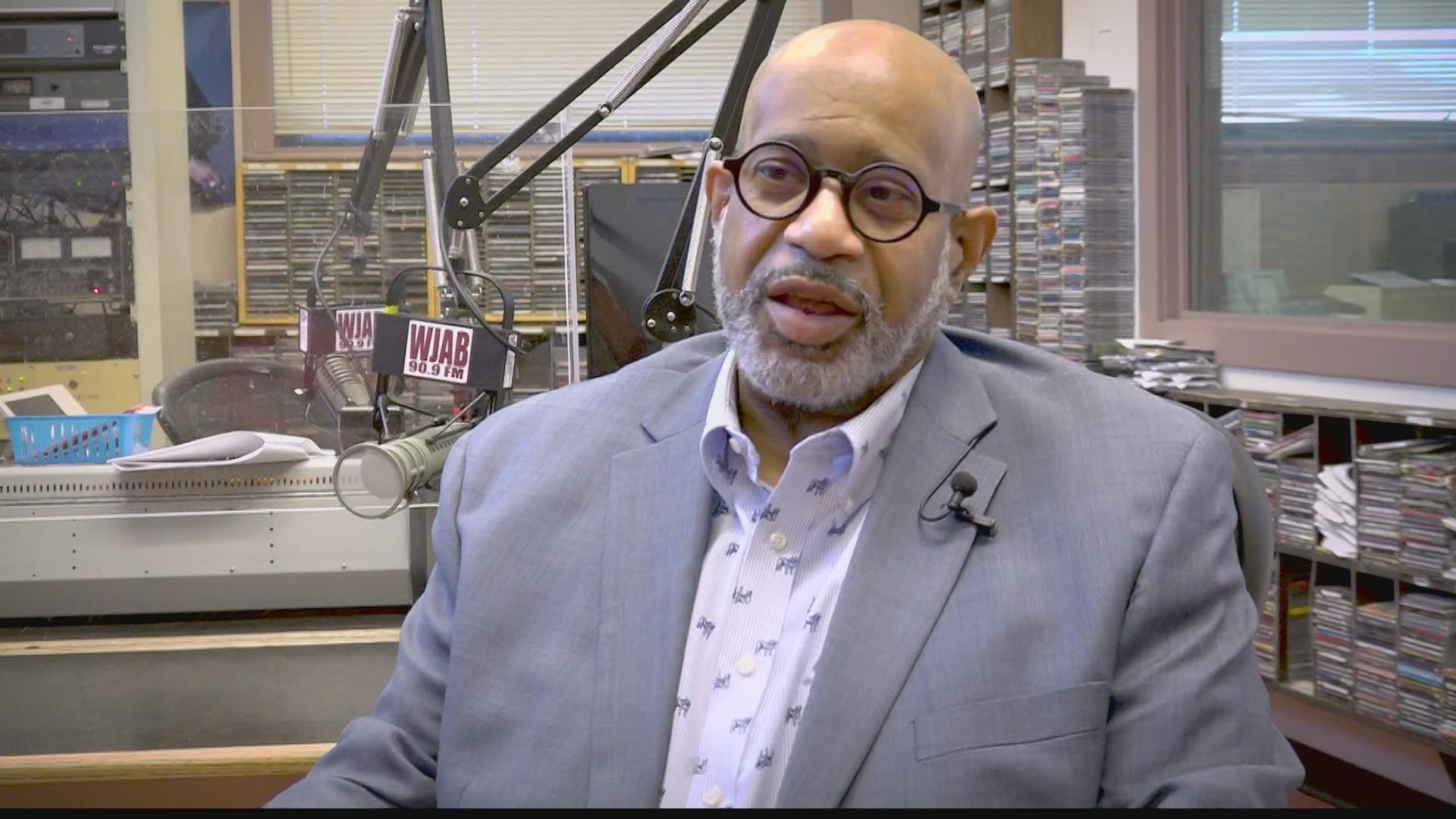HUNTSVILLE, Ala. — Back in the day, whether you lived here or were just passing through The Tennessee Valley, you were bound to hear some kind of tunes playing over the airwaves; however, it wasn't until 1958 that the first Black-owned, Black-operated radio station planted its roots here in Huntsville, Alabama.
"I was born in '58 and that's when WEUP started here in Huntsville and of course, that's the station that I grew up with, so I learned music listening to WEUP," said Associate Director of Electronic Media Communications at Alabama A&M University, Michael Burns.
"Because WEUP was the first Black-owned and operated radio station here in North Alabama, it became kind of community-owned. The community took possession, so to speak, and that's how we've operated, making sure that we serve or super-serve the African American community here in north Alabama," said Morning Show Host at WEUP 103.1, Steve Murry.
Not only was the radio station serving a variety of listeners; it was also recruiting a variety of talent.
"We made it a point to help to develop other talent here in Huntsville. So, there are many young professionals in radio that got their start here," said Murry.
"Growing up in the area, I can remember as young as probably six, hearing WEUP so, it's always been a goal and when I decided I wanted to be in radio to be a part of this station because it is a representation of the community," said WEUP Personality Lashay B.
Other than a passion for radio, much of this talent had something in common... a connection between both WEUP and Alabama A&M University.
"Many of the folks that work there, went to school here and many that went to school here - some of them have worked or done training with them over at WEUP," said Burns.
"That's where [Alabama A&M] I actually fell in love with the radio and knew I wanted to do my internship here at WEUP so, and it means the world to me," said Lashay B.
When the HBCU started their own journey via airwaves, the same went for those who tuned in.
"Those that listened to them, listen to us and vice versa," said Burns.
But there were a few differences between the two stations. When the A&M radio station came onto the scene, its mission was to cater to a particular group of music lovers.
"WJAB, when it was created was to fill a niche here in the Huntsville community. We didn't have any jazz stations or any stations at least totally playing just jazz. Dr. Hayward Handy, we like to call him the father of WJAB. He wanted to bring that genre to the city," said WJAB Program Director, Erica "Fox" Washington.
"It took years to get it together though, everything working, took a lot of people, lotta support and in 1991 he was able to sign us on the air," said Burns.
WJAB was born just over thirty years ago, also planting its roots here in Huntsville but its impact is felt far beyond northern Alabama.
"It's unusual for a university to have a station that's 100,000 watts. You- that's a lot of power, a lot of power and then what makes it even better, you have the internet, that came about so we can say we're worldwide," said Washington.
"We have to realize there is a reach, now in 1991 when we started, that reached didn't extend past our 100,000-watt signal but now we reach around the world, 24/7," said Burns.
"For us to be here since 1991 and to be able to get our name out there, our sound out there worldwide - is, is huge," said Washington.
Speaking of impact, both of these radio stations have made history here that will last a lifetime.
"When you look at the fact that rock and roll came from the blues, that came from the black experience. When you look at country music, much of it came from the blues, which came from the black experience. The easy listening ballads and things came from the R&B, that came from the Black experience. So, I think it's very important that history or that history is kind to stations like us, that they look at us with some honor, because we're presenting to you music that is not this week old, it's not the newest record, this music is centuries old. This music is of blood and tears and sweat," said Burns.

